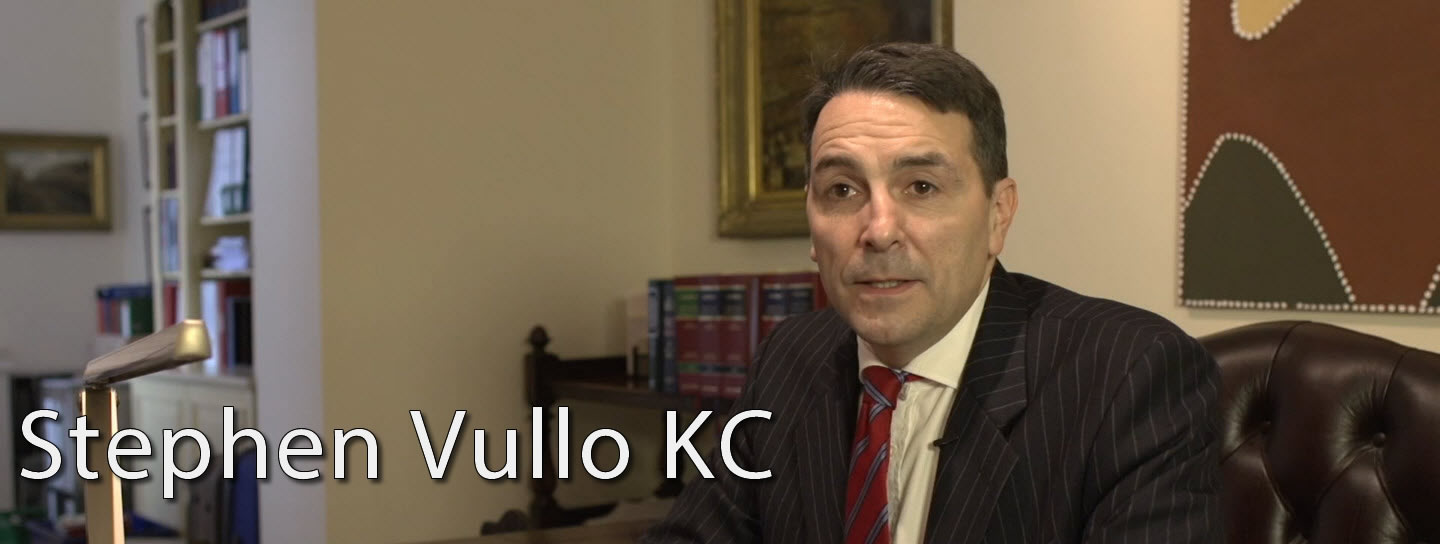Despite the absence of certain evidence at trial, the appellant’s convictions for sexual assault and rape of his half-sister were safe, because the totality of the trial process including the directions given and the summing up was fair.



Despite the absence of certain evidence at trial, the appellant’s convictions for sexual assault and rape of his half-sister were safe, because the totality of the trial process including the directions given and the summing up was fair.
ABUSE OF PROCESS ASSAULT BY PENETRATION CRIMINAL EVIDENCE CRIMINAL PROCEDURE JURY DIRECTIONS POLICE INTERVIEWS PREJUDICE RAPE SEXUAL ASSAULT SEXUAL ASSAULT OF CHILD UNDER 13 WITNESSES
A conviction for sexual assault was safe where a judge had refused to grant an adjournment to allow the defence time to contact a witness mentioned by the victim for the first time in her evidence in chief. Instead the judge had admitted hearsay evidence which indicated that the witness would not have been able to support the victim’s case.
ADJOURNMENT CRIMINAL EVIDENCE CRIMINAL PROCEDURE DOCUMENTARY HEARSAY EVIDENCE IN CHIEF FRESH EVIDENCE PROPRIETY OF REFUSAL OF REQUEST FOR ADJOURNMENT SEXUAL ASSAULT WITNESS MENTIONED BY VICTIM FOR FIRST TIME IN EVIDENCE IN CHIEF WITNESSES
A judge in an historic sexual offences trial had not erred in declining to discharge a juror who had known a witness’s husband through work only well enough to say hello to in passing. The judge had ascertained that the juror felt that she could remain faithful to her oath and there had been no objectively justified or legitimate doubt as to her impartiality.
BIAS CRIMINAL PROCEDURE DISCHARGE OF JURY NORTHERN IRELAND SEXUAL OFFENCES WITNESSES
A trial judge had a wide discretion as to what warning, if any, he gave to a jury in relation to a witness’s alleged unreliability. In the instant case, the judge had given an adequate and appropriate warning to the jury with regard to the inconsistencies in the complainant’s evidence and an admitted lie, and the offender’s conviction for indecent assault and rape was safe.
CREDIBILITY CRIMINAL EVIDENCE CRIMINAL PROCEDURE DISCRETION INDECENT ASSAULT JURY DIRECTIONS LIE TOLD BY COMPLAINANT LUCAS DIRECTIONS RAPE SEXUAL ASSAULT OF CHILD UNDER 13 STRENGTH OF WARNING TO JURY AS TO NEED FOR CAUTION WITNESSES
A judge had not erred in refusing to stay proceedings for abuse of process in a trial concerning sexual offences which took place after the death of a defence witness, where there was no suggestion that the witness would have given unique or striking evidence, and the judge had properly directed the jury on the matter so as not to render the trial unfair.
ABUSE OF PROCESS ADEQUACY OF JURY DIRECTIONS CRIMINAL EVIDENCE CRIMINAL PROCEDURE DEATH OF KEY DEFENCE WITNESS DEFENCE EVIDENCE DEFENCE WITNESSES FAIRNESS INDECENT ASSAULT RIGHT TO FAIR TRIAL STAY OF PROCEEDINGS WHETHER ABSENCE OF EVIDENCE AFFECTED OUTCOME WITNESSES
Where a trial proceeded on the basis that different counts of criminal liability required separate consideration and there was a difference in the cogency of detail in the evidence on the different counts, a decision of the jury was not unlawful due to inconsistency where an offender was found guilty on a count of indecency with a child but acquitted on counts of rape.
CHILD SEX OFFENCES CONSISTENCY OF JURY VERDICTS CRIMINAL EVIDENCE CRIMINAL JUSTICE ACT 2003 CRIMINAL PROCEDURE INCONSISTENT VERDICTS JURIES MULTIPLE COUNTS OF CRIMINAL LIABILITY SENTENCING STRENGTH OF EVIDENCE SUMMING UP SUSPENDED SENTENCES WITNESSES
Where the cross-examination of a complainant under the Youth Justice and Criminal Evidence Act 1999 s.41(1) to show that her allegations of sexual abuse against an individual were false, and therefore that her allegations against the defendant were likely to be false, meant that the jury would have been told about the individual’s limited admissions to the allegations, there was no real prospect that the jury would infer that the allegations were false, and an application under s.41(1) was refused.
APPLICATION UNDER S.41(1) OF YOUTH JUSTICE AND CRIMINAL EVIDENCE ACT 1999 TO CROSS-EXAMINE WITNESS CHILD SEX OFFENCES CREDIBILITY CRIMINAL EVIDENCE CROSS-EXAMINATION EFFECT OF ALLEGATIONS MADE AGAINST THIRD PARTY ON ALLEGATIONS MADE AGAINST DEFENDANT SEXUAL ACTIVITY WITH CHILD FAMILY MEMBERS SEXUAL OFFENCES TRUTHFULLNESS OF ALLEGATIONS MADE AGAINST THIRD PARTY WITNESSES YOUTH JUSTICE AND CRIMINAL EVIDENCE ACT 1999 s.41(1)
A judge had not erred in law in rejecting an offender’s submission of no case to answer to four counts of rape and two counts of sexual assault, all of a child aged under 13, in circumstances where, despite inconsistencies in the victim’s evidence, through the victim’s various accounts the judge had a clear basis on which to form his conclusion that, applying the principles established in R. v Galbraith (George Charles) [1981] 1 W.L.R. 1039, it was for the jury and not for him to assess the victim’s credibility.
CREDIBILITY CRIMINAL EVIDENCE CRIMINAL PROCEDURE FAMILIAL CHILD SEX OFFENCES INCONSISTENT EVIDENCE FROM VERY YOUNG VICTIM LAWFULNESS OF REJECTION OF SUBMISSION NO CASE TO ANSWER PREVIOUS INCONSISTENT STATEMENTS RAPE SEXUAL ASSAULT SUFFICIENCY OF EVIDENCE WITNESSES
Where a defendant faced several counts of sexual offences on the same victim, the jury’s verdicts could not be said to be inconsistent where it had convicted the defendant on the only count that had supporting evidence.
ACQUITTAL ON MAJORITY OF COUNTS CARER CEREBRAL PALSY CONVICTION SAFE CREDIBILITY CRIMINAL EVIDENCE CRIMINAL LAW INCONSISTENCY WITH CONVICTION ON SINGLE COUNT INCONSISTENT VERDICTS INDECENT ASSAULT JURIES JURY TRIAL MALE VICTIM SUFFICIENT EVIDENCE WITNESSES
Please use the form below to make contact. Your email will be responded to promptly (we endeavour to respond to all email enquiries within one hour). Alternatively, you can call Stephen's firm, Twelve Tabulae Limited, on +44 (0) 203 846 5801.